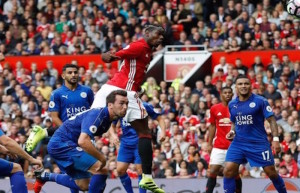New Marumo Gallants coach Alexandre Lafitte was just 25 when he took over as Stade d’Abidjan coach in 2023, making him the youngest tactician at a professional club in the world, writes Nick Said.
Young French coach Alexandre Lafitte transformed Ivorian side Stade d’Abidjan from relegation battlers to the group stages of the African Champions League in 2024/25, and finally a first Ligue 1 trophy since 1969 at the end of the campaign.
Seeking a fresh challenge, he has joined Marumo Gallants in the Premier Soccer League and reveals his coaching journey to SoccerClub.
How was the experience of competing in the pool stages of the African Champions League last season? Has it made you hungry for more?
For us, it was a great experience – and also great fun. We were a young team, so it was a good result just to reach the group stage of the Champions League.
Before that, we eliminated the champions of Senegal and the champions of Guinea (in the preliminary rounds), which already showed the team’s performance and progress. Once you’re in the group stage, you’re up against very strong teams.
Still, I think we had some good performances – especially the match in Abidjan where we drew 1–1 with Orlando Pirates, and even against Al Ahly, we were leading 1–0 at half-time.
But in the end, the difference came down to the level of the players, the staff, and the overall structure behind the big clubs.
That’s where the gap really shows. So yes, it was a valuable experience.
How did you achieve all of that with a fraction of the budget of other teams?
It is a little frustrating when you look at the resources. For example, our monthly budget or payroll might equal the price of just two players for Al Ahly. You understand? It’s incredible.
But as a competitor, you want to show more, you want to win. And that becomes difficult when people on the outside don’t see the reality.
They don’t realise that we don’t have the same support, the same facilities. Still, it was a good experience for the club, for the players, and for me.
But when you’re a competitor, these limitations are tough to accept. You always want to push further.
Stade d’Abidjan were struggling in the relegation zone when you arrived at the club in 2023, but you turned them into champions . How did that happen?
It was about the game plan, and I changed the mentality. When I first arrived, the team was in a bad place – things weren’t going well.
But over time, we were able to recruit the right players and build a more balanced squad. I believe the team’s real strength was in its unity – our ability to work together, to develop, and to build a strong mentality.
We shared the same ambition, and that makes it possible to work hard and believe in ourselves. When you have a solid game plan and a clear methodology, the players enjoy playing.
They see the results, and that motivates them to come to training and to keep pushing.
That’s how we can build something special – a story, and a team of real quality.
You talk about the game-plan, what is your tactical philosophy?
When we have the ball, I like to control the team through positioning – different positions depending on the game.
I want to find free players between the lines and attack with purpose. I also like to attack with numerical superiority, and when we don’t have the ball, I want us to press with high intensity.
I like to control the opponent, even when we’re defending. When we have the ball, we aim to impose our style.
I believe in open, attacking football. That’s why, in some cases, like against Al Ahly, it’s possible to concede. I accept that – we have an offensive approach. Sometimes that means taking risks, and with risks come mistakes and defeats.
For example, when you play against Al Ahly and you’re losing 4–2, there are still moments where they can create two or three chances.
That’s the reality of playing attacking football. It’s a choice, and I accept the consequences because I believe in our style.
Are you working towards improving your qualifications?
I currently have a UEFA A license, and I should be able to get the UEFA Pro license soon.
But I’m not sure how it works exactly, it’s about the ‘validation of experience’. I’m not sure if you’re familiar with that.
It was an issue for me in the CAF Champions League, as I was not allowed to coach on the pitch.
But I’ve heard that CAF now allows some flexibility: if you stay with the same team, you have two years to get either the UEFA Pro or CAF A license.
You are 28 now, but still young for a coach. Do you think your age matters to your players?
I don’t think age is a problem. What really matters is having a clear idea when you come in with the intention to improve the players and develop the team.
I think it’s actually a strength to be close in age to the players because you can really understand them.
We’re from the same generation, and that helps build a strong relationship. But of course, there also has to be structure – a clear set of rules and discipline within the group.
Once the players understand that, they can focus on growing, enjoying themselves, and striving to win.
It’s important to be firm but also to understand each player’s personality – who they are as a person. That’s the foundation for building a good relationship.
I do have very good relationships with my players. I think that’s one of my strengths, my management style.
I’m good at creating a positive environment and giving the team a sense of opportunity. At the end of the day, everyone wants to win.
Everyone wants to bring energy to reach that goal. And when you have a clear structure and build strong relationships, you can create a powerful team – and that’s when big things become possible





